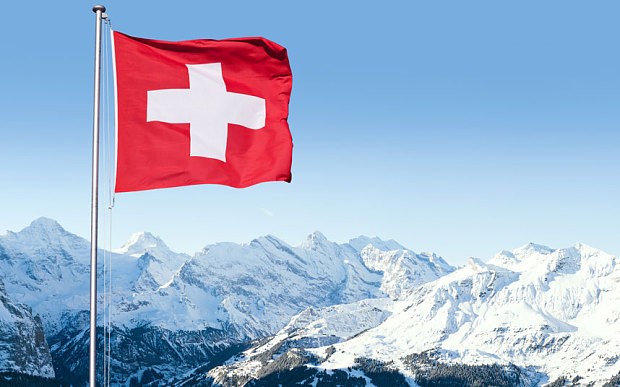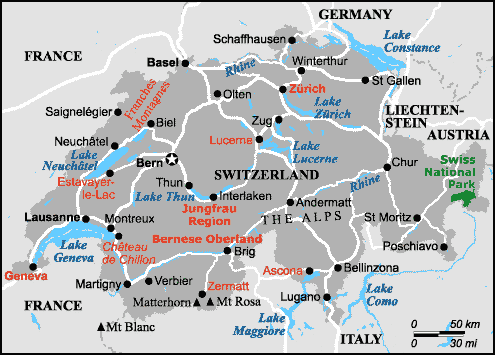
A Switzerland Limited Liability Company (SARL) / (LLC) is a company whose liability is limited to the contributions of its members. This is why its name is a “Société à Responsabilité Limitée” (SARL) which is translated into “Society with Limited Responsibility”. It is a private limited liability corporation which is also designated by the abbreviation “GmbH” (Gesellschaft mit beschränkter Haftung) which is German for “company with limited liability”.
The SARL is similar to a limited liability company or LLC in the United States, and a United Kingdom private company limited by shares.
The Civil Code of Switzerland administers all business entities. While Switzerland is a federal republic it does not maintain a centralized federal registration system for its business entities. Each of the 26 cantons (similar to provinces or states) registers every business in its jurisdiction with its own Commercial Registry.
Background
Switzerland is a federal republic officially called the “Swiss Confederation” situated in Central Europe and is totally landlocked. The city of Bern is the seat of the federal republic. It has a political system with a two house legislative assembly along with a Federal Council and a Federal Chancellor.
Switzerland Limited Liability Company (SARL) Benefits
A Swiss LLC (SARL) has the following benefits:
• Total Foreign Ownership: Foreigners may own 100% of all the shares.
• Limited Liability: Shareholders’ liabilities are limited to their share contributions.
• One Shareholder: SARL only needs one shareholder to incorporate.
• One Director: The minimum requirement is only one director who may be the sole shareholder.
• Total Control: A single shareholder can have total control.

Switzerland Limited Liability Corporation (SARL) Name
The company name must be unique unlike any other Swiss legal entity’s name
The SARL company name must insert one of these abbreviations: “GmbH” or “Ltd liab.Co” at the end of its name.
Formation
The Company Registry is where all required documents for incorporation muse be filed. All corporate and personal signatures must be signed in front of a public notary who will authenticate the Articles of Association and the Public Deed of Incorporation.
Personal filings are not required as the registration process may be performed using express mail where the entire application process can take from 3 to 5 business days. The Registry then issues the Registration Certificate for the new company.
Then the Commercial Register published the Articles of Association and the names of the shareholders in the Commercial Gazette announcing the formation of a new company.
Articles of Association
The SARL must prepare its Articles of Association including:
• Name of the SARL;
• SARL’s Swiss address;
• SARL’s purpose for incorporating;
• Total share capital and total issued shares;
• General and shareholders meetings prerequisites; and
• Appointment of auditors and administrators.
Limited Liability
Shareholders’ liabilities are limited to their share contributions. The SARL is a separate legal entity responsible for its own debts and obligations.
Shareholders
A minimum of only one shareholder is required to incorporate. Only common shares may be issued. Bearer shares are not permitted.
Share contributions may be in cash or with “in-kind” assets or properties or equipment.
Nominee shareholders are permitted for greater privacy.
Shares cannot be freely transferred. Transfer of shares requires agreement of at least 50% of the shareholders if the beneficiary is a third party. However, if the beneficiary is a spouse, a partner, a descendant, or an ascendant, the shares are freely transferred.
In order to transfer shares, a sales contract must be signed in front of a notary.

Directors
The required minimum is one director. At least one director must be a Swiss resident. Nominee directors are permitted.
A Board of Directors is not required.
Minimum Capital
The minimum share capital is 20,000 CHF which must be paid in full at the time of formation. Cash and in-kind contributions are permitted.
Registered Office and Agent
Every SARL must maintain an office in Switzerland and appoint a local registered agent to accept service of process and official notices.
Accounting
The law requires acceptable accounting standards for bookkeeping and account records and filing of annual financial statements to the government.
The appointment of an auditor is only an option.
Taxes
The SARL files its own tax return as a legal entity. New SARL’s must apply to the Federal Tax Administration after approval of registration by the Commercial Registry for corporate tax and VAT identity numbers.
Taxes are imposed by the federal government and each canton which have different tax rates. Here are the corporate tax rates and their ranges:
•Direct federal taxes on profits: 8.5%
•Cantonal tax on profits: 5.9% – 16%
•Cantonal tax on capital: 0.05% – 0.3%
•Total tax burden: 14.5% – 25%
SARL’s file their own separate tax returns like a corporation.
The Value Added Tax (VAT) is 8% which is the lowest rate in Europe.
Annual General Meetings
Annual general meetings are required for the shareholders.
Public Records
Shareholders’ names are listed along with the names of the directors in the Public Registry which is accessible by the public.
Time for Registration
The average timeframe to form a new SARL can take between 3 to 5 working days.
Shelf Corporations
Shelf corporations are not available.
Conclusion
A Switzerland Limited Liability Company (SARL) / (LLC) has the following benefits: foreign ownership of every share, limited liability, only one shareholder required, only one director required, total control by a single shareholder.


